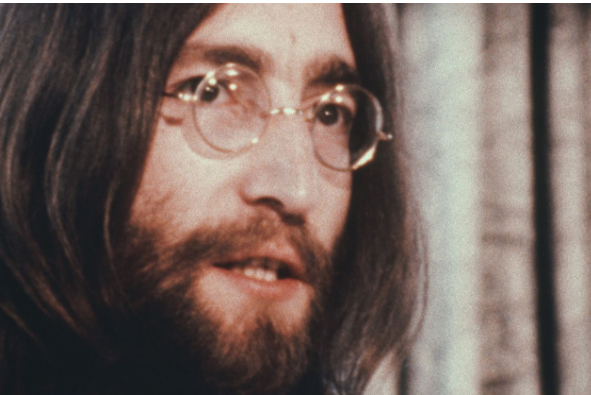
Today is the 43rd anniversary of John Lennon's assassination. The older I get, the more clear I am that Lennon's murder, and the assassination of John F. Kennedy, are the two most deforming events of the history that has taken place in my life. And of the two, Lennon's was the worst, since he was one of the most wondrous singer-songwriters who ever lived, which I think is more rare that even a great President.
Given all of that, how I could I not watch this short documentary that went up two days ago on Apple TV+. Short -- three episodes, that added up to less than three hours. I would have much rather spent that time re-watching any part of Peter Jackson's The Beatles: Get Back. But I felt I had no choice.
Was it worth it? Well, here are the highlights of what most struck me about this documentary:
1. MKUltra, the CIA operation 1953-1973 that drugged, hypnotized, and otherwise abused subjects without their knowledge to do its bidding, may have played a role in Lennon's assassination. More specifically, it's implied/suggested that John Lennon's assassin may have been hypnotized and more by the CIA. This is the second time MK-Ultra has come up in documentaries I've watched/listened to in the past few weeks. The excellent Who Killed JFK? podcast with Rob Reiner and Soledad O'Brien is exploring the role that MK-Ultra may have had in that assassination. And unlike John Lennon: Murder Without a Trial, the JFK podcast goes beyond mere suggestions and offers some evidence.
2. The assassin of John Lennon said he killed him to get more people to read The Catcher in the Rye. The documentary tells us the shooter who attempted to kill Ronald Reagan under four months later had a copy of that very novel in his hotel room. But the documentary gives that no further consideration. Was the novel figuring in the life of one assassin and the life of a would-be assassin just a coincidence? I'd say, probably not. So does that novel have some kind of monstrous effect on vulnerable minds, on the psyches of people who are mentally ill? I'd say, also probably not. The most the likely explanation for Catcher in the Rye being in the lives of the two shooters is that the second was sickly inspired by the first. But that's just logical -- the documentary provides no evidence of that.
3. If you're interested in alternate history -- which I very much am -- Lennon's record producer, Jack Douglas, provides an exquisitely heartbreaking example. He tells us that he'd usually go back with John and Yoko from the recording studio to the Dakota, I guess to talk over what they'd done that night, or were planning to do the next night, or whatever. On that night, the night that Lennon was murdered, Douglas did not go back to the Dakota. He's sure that if he'd seen the assassin lurking, Douglas would have done something, "tackle" that "nutcase," anything, to prevent the beyond obscenity that occurred. A day hasn't gone by since then that Douglas hasn't raked himself over the coals for not being in the limo that night with John and Yoko.
4. Yoko Ono correctly points out that John likely wouldn't have been killed by an assailant with just a knife, and says point blank that John's death was due to a lack of gun control in the United States. The insane, mounting number of shootings in the United States with every passing year couldn't make Yoko's message any more timely. Just yesterday, three people were shot to death at a university in Las Vegas. These shootings which seem to be happening now almost weekly or more often are the fault not only of the person who pulled the trigger but every US Senator and Representative who has steadfastly stopped sensible gun control, over and over again.
Indeed, though Kiefer Sutherland's voice as narrator was very effective as it always is, and the lawyers and the police and the other people who played a role in the aftermath of John Lennon's assassination were interesting and sometimes crucial to see and hear from, the five or so minutes that Yoko was on the screen is what most made John Lennon: Murder Without a Trial worth watching. Most of that comes near the end. Will that make it worthwhile viewing for you? I guess that depends, more than anything, on how much tolerance you have for another dose of horror and grim understanding that cuts through your soul.
====
Here's an alternate history story about The Beatles that might make you feel a little better.
No comments:
Post a Comment